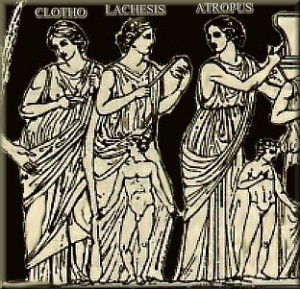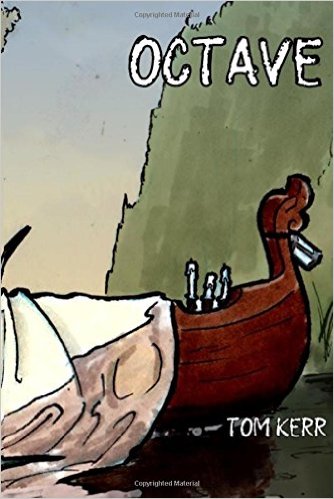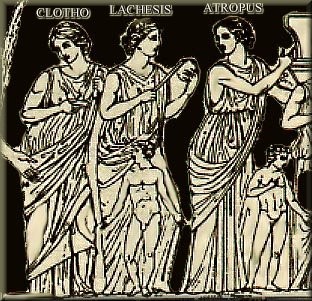“Two households, both alike in dignity,
In fair Verona, where we lay our scene,
From ancient grudge break to new mutiny,
Where civil blood makes civil hands unclean.
From forth the fatal loins of these two foes
A pair of star-cross’d lovers take their life,
Whole misadventured piteous overthrows;
Do with their death bury their parents’ strife.
The fearful passage of their death-mark’d love;
And the continuance of their parents’ rage,
Which, but their children’s end, nought could remove,
Is now the two hours’ traffic of our stage;
The which if you with patient ears attend,
What here shall miss, our toil shall strive to mend.”
Most readers will recognise this sonnet as the prologue to The Tragedy Of Romeo And Juliet by William Shakespeare. The prologue is often told by a chorus. A chorus will be familiar to theatre goers who are familiar with Greek tragedies and comedies as most of them use one. A chorus served a number of important functions in these plays;
- The chorus would set the scene and provide background information for the audience.
- It would provide a commentary on the action taking place on the stage.
- The chorus would prepare the audience for key moments in the storyline.
- Importantly, the chorus represented the prevalent views of the audiences’ society, holding up moral and cultural standards (just like the tabloid press and the BBC says it does today!)
- Often the audience would be familiar with the story, so the chorus could offer an alternative viewpoint.
So William Shakespeare’s sonnet sets the scene for the coming action. In line 5 of the sonnet the hero and heroine are called star-crossed lovers. Wikipedia.org tells us that star-crossed lovers is a phrase meaning the pair are being “thwarted by a malign star” or that the stars are working against the relationship”. The phrase stems from a belief that the position of the stars determines peoples’ fate. Some people still believe in this today.
Listening to the prologue the audience can work out from the beginning that Romeo and Juliet will not be ending the play happily married and living in a semi-detached house in the suburbs with two kids and a dog. In fact a number of factors totally outwith their control conspire at different points in the play to thwart the young lovers. Today we would call these factors bad luck, but to Shakespeare’s audience and indeed to the audiences of the ancient Greek tragedies these factors would be seen as fate. The hand of fate is an important theme that runs through the storyline of The Tragedy Of Romeo And Juliet.
As a quick summary let’s have a quick look the raw deal fate has dealt Romeo and Juliet. They were born into two opposing families, who hated each other and were permanently at war with each other so their marriage would have been out of the question to for both families. In any case Juliet’s father has arranged a marriage for her to a rich nobleman. However they do get married in secret but Romeo ends up killing Juliet’s cousin on their wedding day and gets banished from Verona. Friar Laurence’s letter telling Romeo to return to Verona to Juliet’s tomb does not get delivered because of an outbreak of plague. Finally, Romeo drinks the poison he has bought just before Juliet wakes from her drug induced sleep.
Regular readers of my blogs will know that Shakespeare had an excellent knowledge of Greek and Roman mythology. Shakespeare will have been aware of the Fates or the Moirai from Greek mythology. The Moirai were the three goddesses of fate, they visited every newborn child within days of its birth and assigned its destiny.

There is some doubt as to the origin of the Moirai, Hesiod writes that they are among the many offspring Nyx the goddess of night. But he also writes that they are the daughters of Zeus and one of his many wives, Themis. Themis was responsible for order in the universe.
The Moirai are often depicted as ugly old women and were;
Clotho, she spun the thread of one’s life.
Lachesis, she measured the thread into its allotted length.
Atropos, cut the thread at its allotted length with her dreaded shears and she also got to determine the manner of one’s death.
No one, not even the gods were exempt from the decrees of the Moirai, not even Zeus.
If we let the Moirai get involved in Shakespeare’s Romeo and Juliet they would have determined that Juliet would have only 13 years of life. Romeo would get a little more maybe 17 or 18. The Moirai would also decide how Romeo and Juliet would die. In addition, it should also be remembered that the Greeks also believed that all other aspects of daily life would be determined by many other gods, who were quick to punish wrong doing or take sides in disputes.
The Tragedy Of Romeo And Juliet was written around 1595 and was an extremely popular play. The audiences at this time were living in a polarised society following the Protestant Reformation which began under Henry VIII in the 1530’s. The aim of the Reformation was to sweep away the Catholic religion and replace it with a new Protestant religion. For the Protestants and in particular, the Puritan movement which grew from it, saw the belief in fairies, ghosts and many of the deities believed in by the populace as things devised by popish priests to keep the ignorant in awe. The theatre was a place where the audience could be entertained by stories full of these beliefs from an older and maybe, a more ‘certain’ time.
The role of fate in our lives was a subject I explored in a sonnet I wrote which was published in my new book Octave, Rowanvale Books, 2015. As this short article began with a sonnet I thought it would be appropriate to end it with my sonnet.
A BOND OF MUSIC AND AWE
Conceived in a bond of music and awe.
Born in a world uncaring and unjust.
For her mother’s pleasures, she feels disgust.
In art, there’s a place where she can withdraw.
Looking for faith, it was sin that she saw.
Craving friendship, there’s aggression, not trust.
In longing for love, she receives only lust.
Madness – the result of our culture’s flaw.
Like Menelaus, and his rage at Troy,
The steel spider, against its foes, marauds.
Their destiny bound by the whims of gods.
“Nobody’s to blame,” for all they destroy.
Can a trust in fortune be a good ploy?
No, it’s our own free will that life rewards.
©Tom Kerr


Comments are closed.